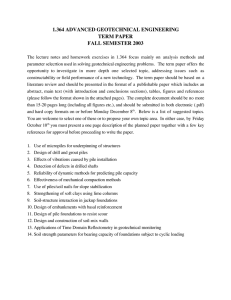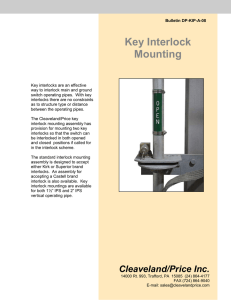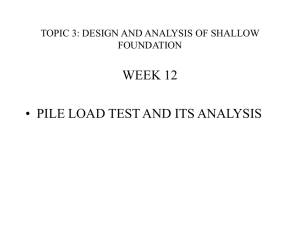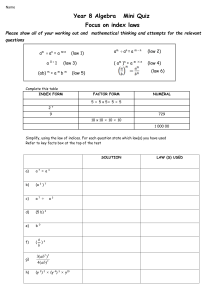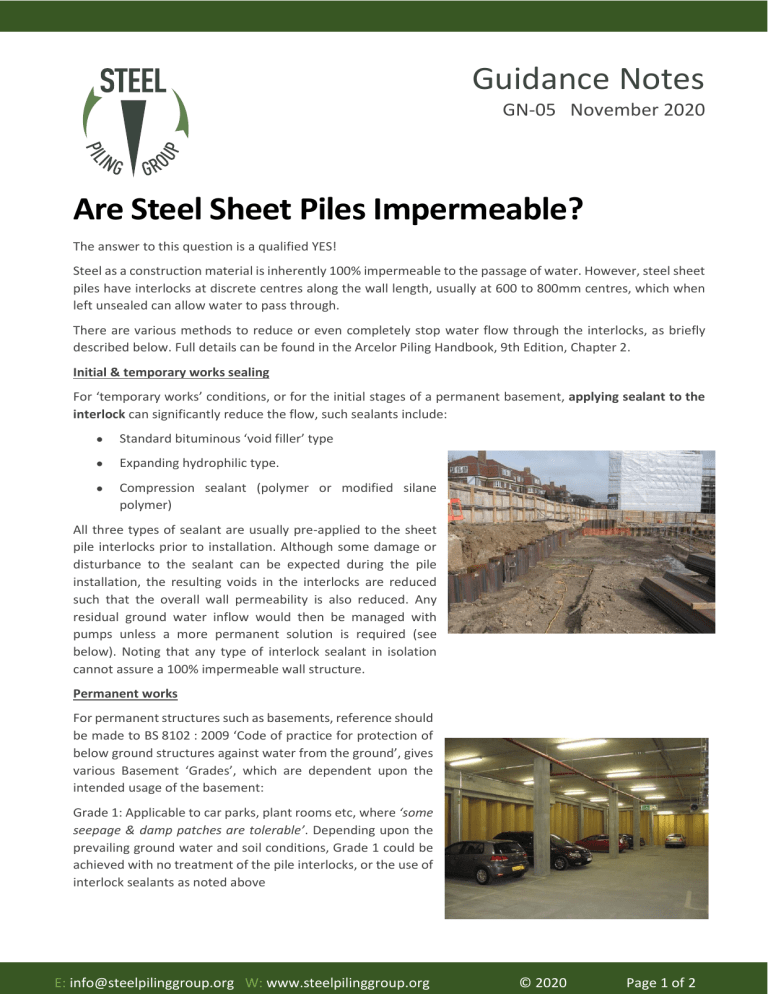
Guidance Notes GN-05 November 2020 Are Steel Sheet Piles Impermeable? The answer to this question is a qualified YES! Steel as a construction material is inherently 100% impermeable to the passage of water. However, steel sheet piles have interlocks at discrete centres along the wall length, usually at 600 to 800mm centres, which when left unsealed can allow water to pass through. There are various methods to reduce or even completely stop water flow through the interlocks, as briefly described below. Full details can be found in the Arcelor Piling Handbook, 9th Edition, Chapter 2. Initial & temporary works sealing For ‘temporary works’ conditions, or for the initial stages of a permanent basement, applying sealant to the interlock can significantly reduce the flow, such sealants include: • Standard bituminous ‘void filler’ type • Expanding hydrophilic type. • Compression sealant (polymer or modified silane polymer) All three types of sealant are usually pre-applied to the sheet pile interlocks prior to installation. Although some damage or disturbance to the sealant can be expected during the pile installation, the resulting voids in the interlocks are reduced such that the overall wall permeability is also reduced. Any residual ground water inflow would then be managed with pumps unless a more permanent solution is required (see below). Noting that any type of interlock sealant in isolation cannot assure a 100% impermeable wall structure. Permanent works For permanent structures such as basements, reference should be made to BS 8102 : 2009 ‘Code of practice for protection of below ground structures against water from the ground’, gives various Basement ‘Grades’, which are dependent upon the intended usage of the basement: Grade 1: Applicable to car parks, plant rooms etc, where ‘some seepage & damp patches are tolerable’. Depending upon the prevailing ground water and soil conditions, Grade 1 could be achieved with no treatment of the pile interlocks, or the use of interlock sealants as noted above E: info@steelpilinggroup.org W: www.steelpilinggroup.org © 2020 Page 1 of 2 Developer Guide - Are Steel Sheet Piles Impermeable? GN-05 November 2020 Grade 2 to 4: Require a 100% impermeable wall system, where additional interlock sealing works should be undertaken. This takes the form of insitu welding of the exposed interlocks following excavation down to the basement formation levels. Depending upon the type of sheet pile section, ‘Z’ or ‘U’, either steel plates or round bars are welded from the slab formation level up to the top of the sheet pile, which is usually embedded into a reinforced concrete capping beam. At the basement slab and sheet pile interface joint, a horizontal steel ‘puddle flange’ water bar can be welded to the full profile of the sheet piles. Together with hydrophilic strips (if deemed necessary), this forms an effective barrier to the passage of water through this joint. Other joint sealing systems are further detailed in the Arcelor Piling Handbook. The welding of the sheet pile interlocks is not considered to be a structural weld. However, the welding is carried out to approved welding procedures and using qualified / tested welders, all in accordance with the requirements of BS EN 10263, with testing regimes for acceptance class C or D to BS EN 5817. Disclaimer Although care has been taken to ensure, to the best of our knowledge, that all data and information contained herein are accurate to the extent that they relate to either matters of fact or accepted practice or matters of opinion at the time of publication, SPG, SCI, the authors and the reviewers assume no responsibility for any errors in or misinterpretations of such data and/or information or any loss or damage arising from or related to their use. E: info@steelpilinggroup.org W: www.steelpilinggroup.org © 2020 Page 2 of 2
